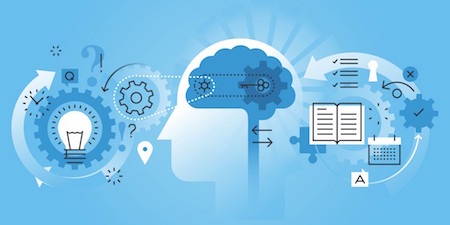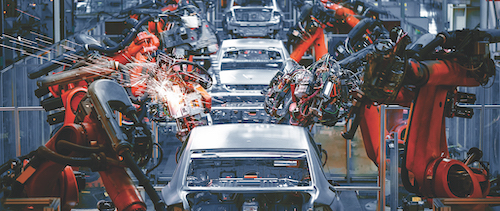By Kathryn deBord, Partner and Chief Innovation Officer at Bryan Cave.
"Legal tech" is the legal industry buzz phrase of 2017. It's come to embody the future of the profession for attorneys and firm management across a spectrum of practice areas. The practice of law, however, has a decidedly different history than other more entrepreneurial businesses that are being transformed by technology. Legal industry business historically approaches change in moderation, reflecting lawyers' responsibility to respect historical norms and precedents. But lawyers must also innovate because their clients demand it. Many firms are striving to embrace technology, but most are not there yet. Ron Friedmann, the well known law practice management expert, aptly summed up the challenge when he remarked that legal tech is "much ballyhooed, but it is not enough to fix law firm and client problems”.
The opportunities for impactful change present themselves in the questions that attorneys should be asking. How can legal tech elegantly intertwine with the ecosystem and practice of law? How can legal tech make it easier for us to do our jobs? How can legal tech be at the heart of providing better legal services and more thoughtful counsel for clients? And perhaps most interestingly, how can legal tech ultimately make us better, more intuitive, and more proactive lawyers?
Examining these questions requires studying the technology that is poised to gain traction in 2017. We must also look at the realities of implementation and adoption of this technology, which is really where transformation takes hold or fails. Technology alone is not innovation—technology must embed itself into the lawyer's practice, and the lawyers must understand and trust the technology enough to permit it to do so. 2017 will see the two coming together—the technology is getting better and better, and lawyers are increasingly making their practices tech-enabled.
Machine-learning-enabled technology, which helps lawyers augment their judgment and expertise, is gaining ground among law firms. It is a type of artificial intelligence (AI) that provides computers with the ability to learn without being explicitly programmed. The computer programs are intelligent in the sense that they adapt and respond to new data and input. The more they are used, the smarter they get. The applications in a legal context include due diligence, legal research, providing legal advice under statutory frameworks, and contract formation and management. 2017 will see broader adoption of this technology, as clients rightfully insist that their lawyers find new innovative ways to deliver a better legal product faster and cheaper.
Eventually, there will be opportunity for AI to not only help us make decisions faster, but to help us identify related issues, analogous arguments and more data-driven risk analyses. Eventually, AI will likely lead to an interesting evolution of our common law system to be one based not only on human intellect, analogy and creativity, but also one nudged by artificial intelligence. Indeed, AI will eventually progress to a point where it can help lawyers "issue spot" by anticipatorily suggesting relevant law, risks, and tactical considerations that they might not consider on their own as they face any particular fact pattern. And where law is not yet settled in a particular jurisdiction, it will help lawyers (and courts) spot analogous fact patterns or legal frameworks from which new law can be derived.
Knowledge management is another technological realm that is poised for advancement in law firms this year. One way to entice lawyers into using technology is to give them meaningful collaboration and ideation capabilities that materially enhance their practice, expertise, and ability to advise their clients. Tech should no longer be viewed by lawyers as discrete tools that they log into for discrete projects—it should present itself as an integral part of their analytical process. Knowledge management no longer can mean simply an expertise retrieval database and an intranet with law firm news on it. Rather, knowledge management must connect the diverse but interconnected lawyers, resources, and entities within a law firm in ways that will give lawyers real-time, end-to-end, and serendipitous visibility into expertise, work product, data, and new ideas. In such an environment, machine learning would help make connections for lawyers and augment their ideation process as they are working to solve their clients' problems. And lawyers will be more deliberate about what information and data they contribute into the ecosystem because they will see real-time the value of the input. Add on data analytics enhanced by a robust data collection system, and the practice of law will become more predictable, effective, and cost-efficient for clients.
Another way to enhance a lawyer's practice with technology is to minimize the distractions of discrete applications. Lawyers don't care what software they're using, and in fact going back and forth from one solution to another to try to make their practices more technologically enabled oftentimes makes it harder, not easier, for them to flow their thought processes and practice law. Indeed, if legal tech is really doing its job, lawyers will not really know which tech they are interacting with—rather, the tech will be integrated into their experience and discreet applications will be integrated with each other on the lawyer-facing end to maximize the experience. Many tech providers are working actively to resolve this, and recognize the importance of having "friendly APIs" to get consumer buy-in. An integration of automation, due diligence, and contract management technology into a seamless solution, for example, combined with streamlined project management and a strong relationship with a legal process outsourcer, would enable a true end-to-end solution for pre-merger, merger, and post-merger activity.
Lawyers are not against change or creativity. Indeed the best lawyers are the most creative. They are taught to use their creativity to shape the law to effectuate results. They are taught to change law as mores change and society advances. But they are also taught to be conservative, and to always analyze the law in the context of precedents. For legal tech to change how law is delivered, the time is now for lawyers to have a hands-on, practical understanding of the current capabilities of emerging legal technology as well as the future possibilities of that technology, for technology companies to actively partner with lawyers and seek substantive feedback from lawyers so that they will ensure both that lawyers understand and trust the technology, and also that the tech optimally integrates into and augments the practice of law, and for law firms to plan for the implementation and adoption of integrated legal tech solutions that will ultimately propel our practice.


.jpg)
.jpg)
.jpg)

.jpg)
.jpg)



